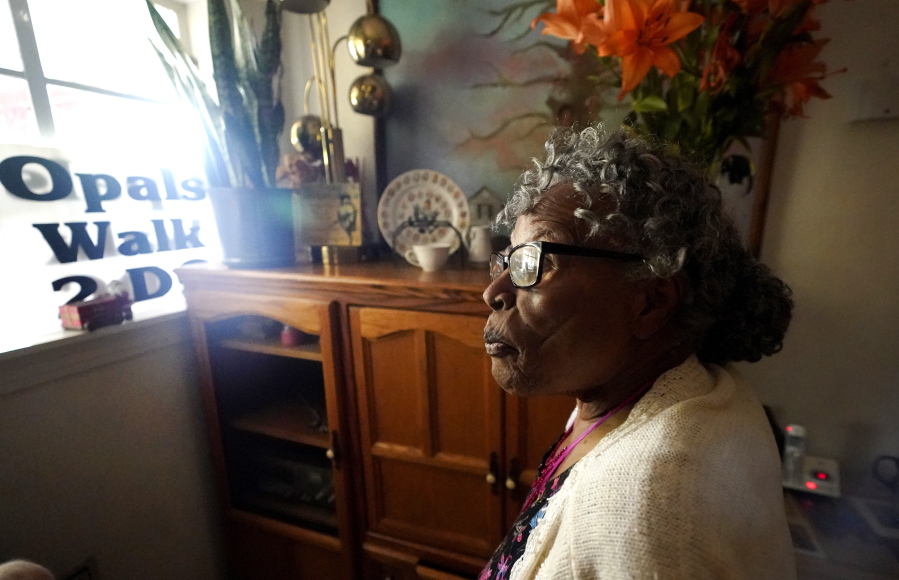FORT WORTH, Texas — Opal Lee’s dream of seeing Juneteenth become a federal holiday was finally realized over the summer, but the energetic woman who spent years rallying people to join her push for the day commemorating the end of slavery is hardly letting up on a lifetime of work teaching and helping others.
Lee, who celebrated her 95th birthday Thursday, has devoted decades to making a difference in her Texas hometown of Fort Worth. She then saw her legacy in recent years stretch far beyond the city as she worked to get national recognition for Juneteenth, and stood beside President Joe Biden as he signed into law the bill making June 19 a federal holiday that commemorates when Union soldiers brought the news of freedom to enslaved Black people in Galveston, Texas, after the Civil War.
“We don’t want people to think that Juneteenth is a stopping point, because it isn’t,” said Lee, who worked for over two decades as a teacher and counselor in the Fort Worth school district. “It’s a beginning, and we’re going to address some of the disparities that we know exist.”
Her recent work in Fort Worth has included establishing a large community garden that produced 7,700 pounds of fruits and vegetables last year, delivering food to people who can’t leave their homes and working alongside others to transform a former Ku Klux Klan auditorium into a museum and center for the arts.
As for Juneteenth, she’d like to see festivities span until the Fourth of July — and incorporate events to provide resources to help people with finances, health and other issues.
Lee was born in 1926 in Marshall, nestled in the Piney Woods of East Texas near the border with Louisiana. Her family later moved to Fort Worth when her father took a job there working on the railroad, but her Juneteenth memories stretch back to her celebrations in Marshall as a young girl.
“They’d have music and food. They’d have games and food. They’d have all kinds of entertainment and food. It was just like another Christmas,” Lee said.
Her memories of Juneteenth also include a harrowing attack on her family in 1939, when a white mob of hundreds descended on their Fort Worth home days after the Black family moved into a white neighborhood. She, her parents and two brothers managed to escape, but her parents never talked about that day again. The mob smashed windows and furniture, according to newspaper reports from the time.
Lee’s childhood came in the shadow of widespread white-on-Black violence in the U.S. In 1921, a white mob went on a deadly rampage in Tulsa, Okla., burning over 1,000 homes and destroying a thriving business district known as Black Wall Street. Two years prior, hundreds of Black people were beaten, hanged, shot and burned to death by white mobs around the U.S. in what’s known as the “Red Summer.”
Educating young people remains a focus for Lee, who earned a master’s degree in education from what is now the University of North Texas in Denton. She wants to make sure that students’ textbooks tell the full history of racial injustices in the U.S. so that “we can heal from it and not let it happen again.”



